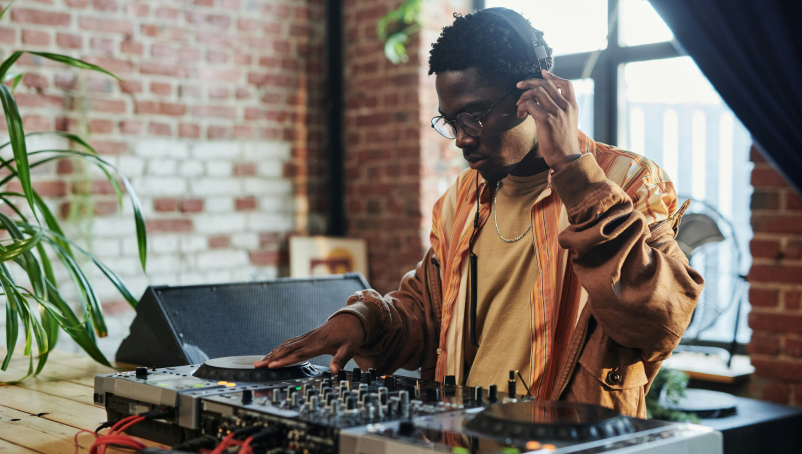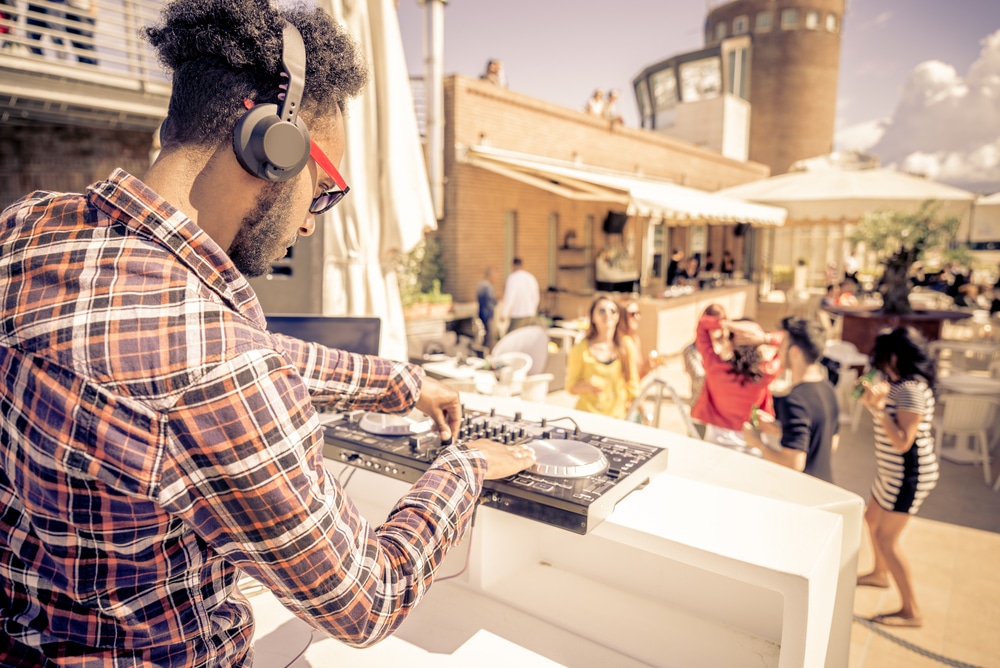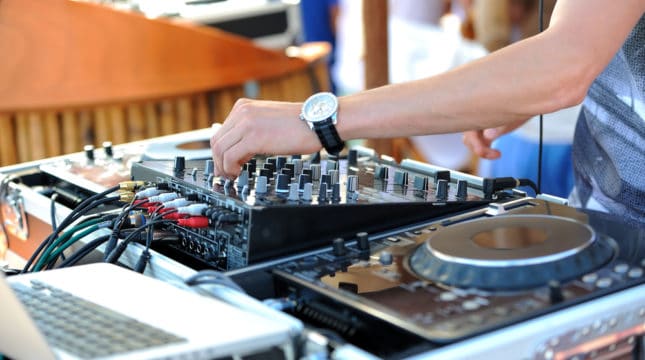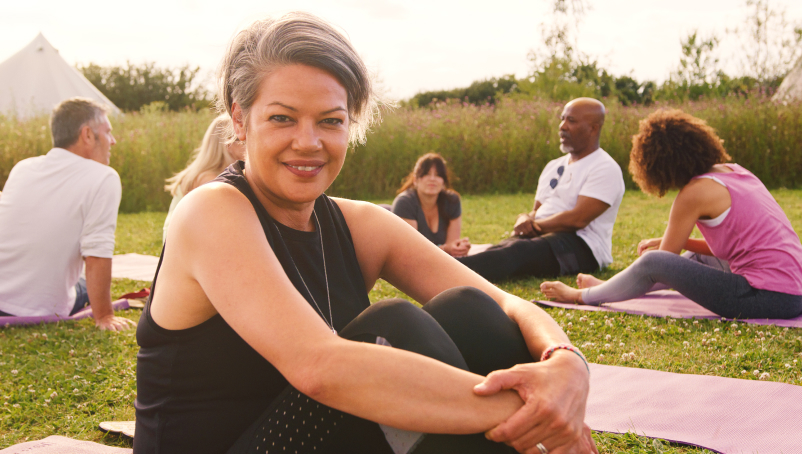Do DJs need a license to play music?
As a DJ, one of your main concerns is using copyrighted music legally, so licensing is an important factor. Most of the songs you play are protected under copyright law, and the rules about their use — particularly for commercial use — depend on the type of event and venue.
For public performances, such as clubs or concerts, venues are usually responsible for acquiring public performance rights from music licensing organizations such as ASCAP, BMI or SESAC, which represent composers, songwriters and other copyright holders. However, you should confirm that the venue has these before accepting gigs to avoid legal complications.
Learn more: How to get a public performance license for your DJ business.
Additional licensing isn’t usually required for private events, like wedding receptions or corporate parties, because they are considered private use. Still, you should check that your music source complies with copyright rules.
For instance, streaming services like Spotify and Apple Music state in their terms and conditions that their services should only be used for personal listening. Public performances using these platforms may violate their terms. Even if you legally buy and download music from iTunes (or play audio files or CDs), licenses typically don’t allow public performance, even if you legally own the track.
To stay fully compliant, consider purchasing music from DJ pools or other sources that include proper licensing for public use. If you’re unsure about your use case, getting legal advice from an intellectual property legal professional on copyright infringement, fair use and your DJ needs is a good idea.
How to get a DJ business license
If you work as a self-employed DJ, depending on your state or local legislation, you may need to get a business license. Many cities and counties require registration to operate legally, especially if you advertise your services or file business taxes.
To get a DJ license, you’ll need to:
- Check local requirements. Visit your city or county’s website to see if DJs are required to have a business license.
- Choose a business structure. When starting out, you’ll likely operate as a sole proprietor or a limited liability company (LLC).
- Register your business name. You may need to file a “Doing Business As” (DBA) if your business’s name differs from your legal name.
- Submit the application. You’ll need to provide information such as your business’s name, location and list of members. You can typically apply online or in person.
- Pay the fee. License fees can be anywhere from $50 to $500, depending on where you run your business. (More in bigger places)
Some DJs also need a Tax Identification Number (TIN) to handle venue or client payments and report income. Check with your local government to find out the requirements.







